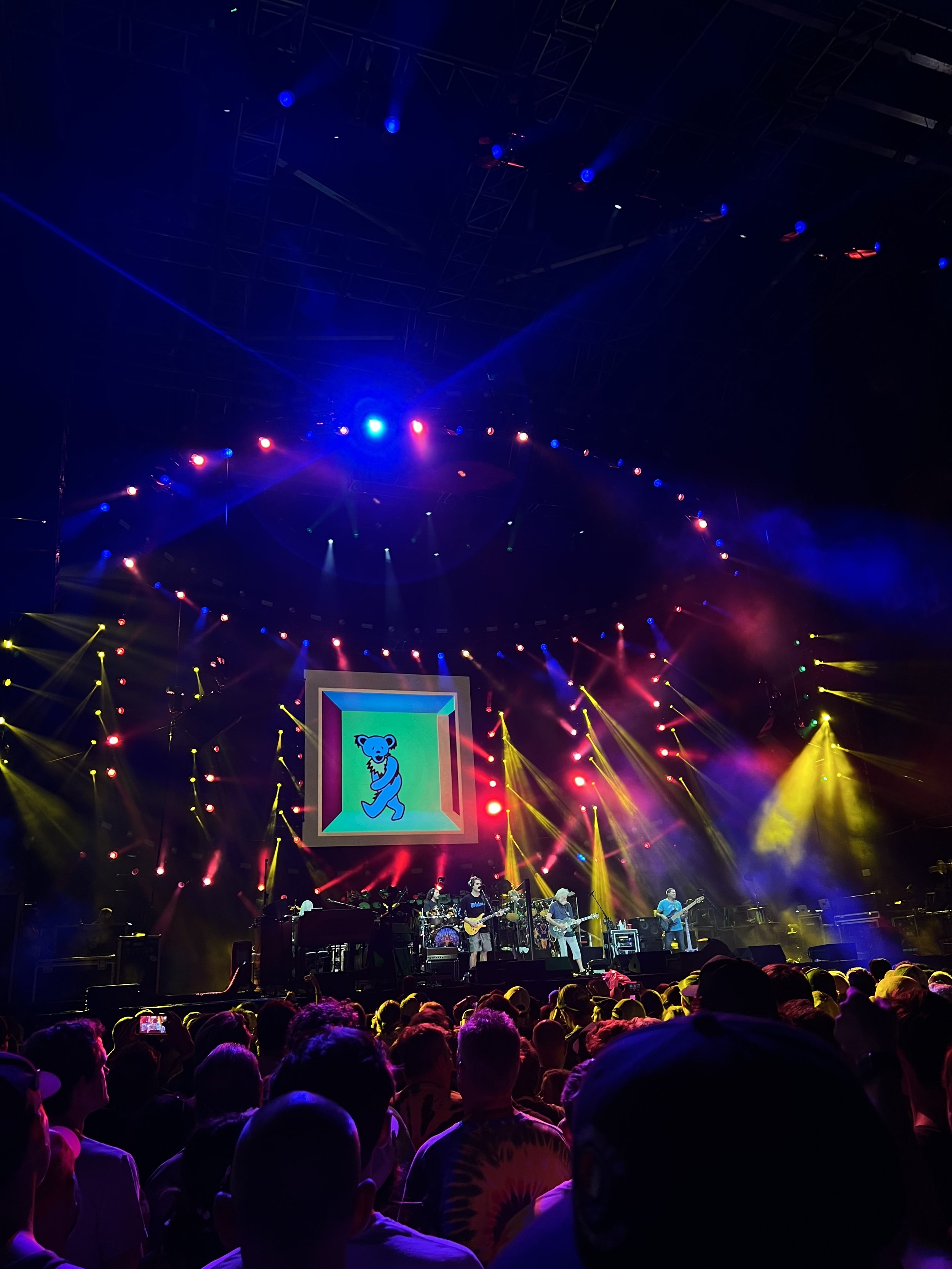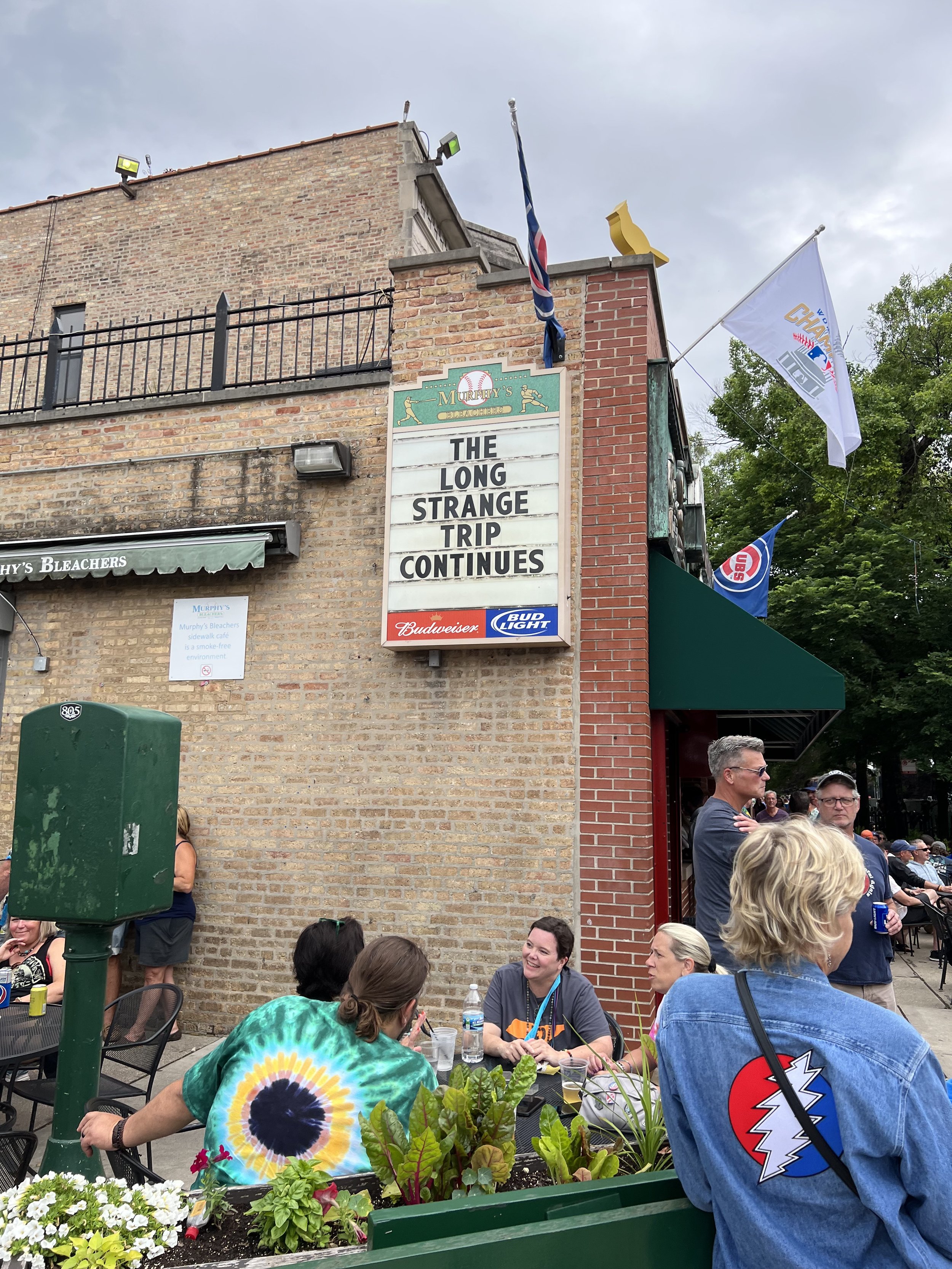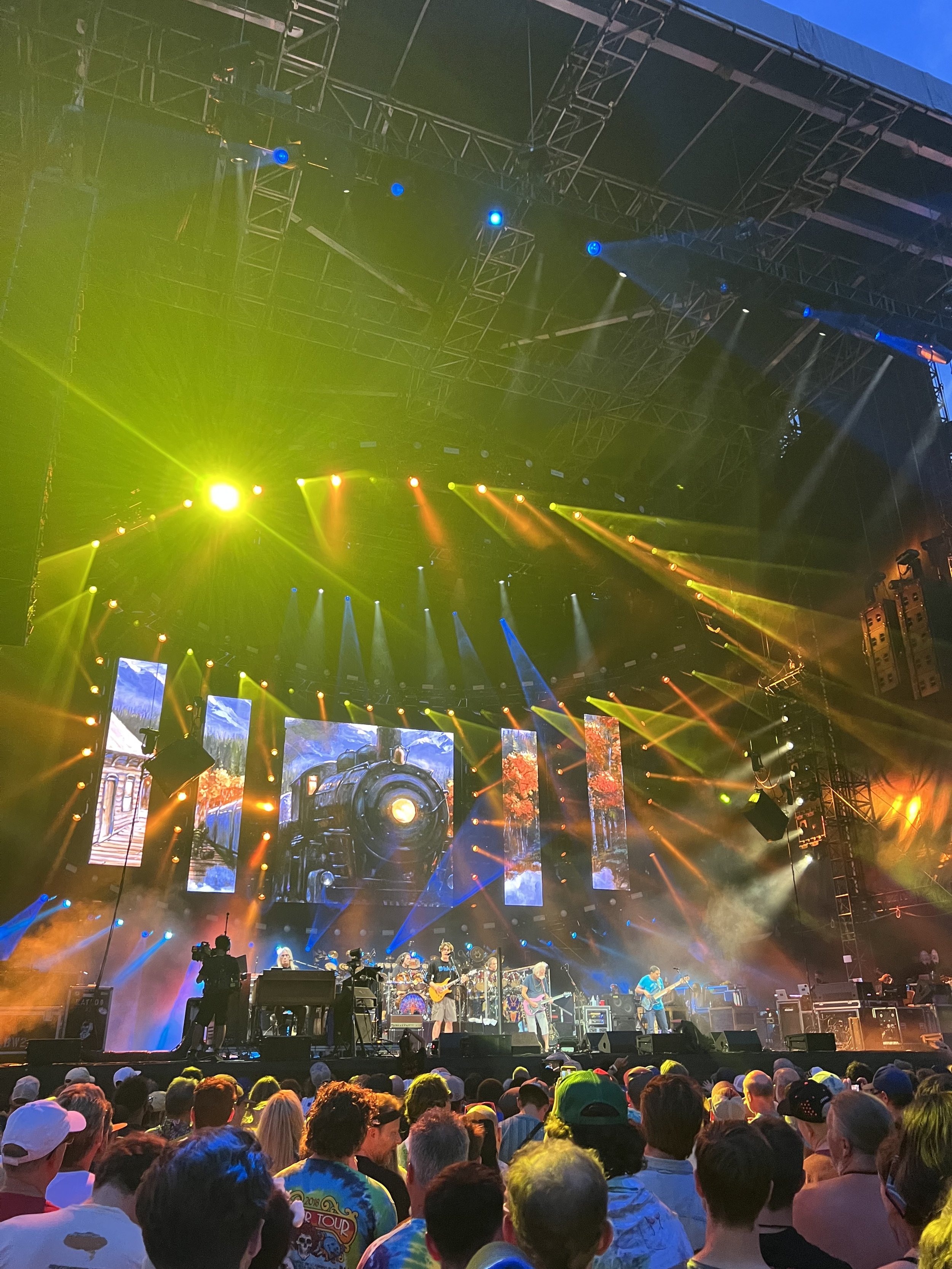Why There’s Nothing Like A Dead Show
By Freya Miller
The Grateful Dead, formed in 1965 amid the San Francisco counterculture, is known for its unique sound and extensive live performances. Founding members of the psychedelic jam band Jerry Garica, Bob Weir, Phil Lesh, Bill Kruetzmann, Mickey Hart, and Ron "Pigpen" McKernan incorporated multiple elements of American music genres, such as rock, bluegrass, gospel, country, and jazz. Their fans, "Deadheads," quickly became devoted to the sound. Since no two shows were the same, as they changed the setlist each night, regulars “went on tour,” following the band nationwide, attending every show they could get tickets for or sneak their way into. This pseudo-pilgrimage, coupled with the growing iconography of tie-dye, skulls, roses, and dancing bears, the fervor of Deadheads became spiritual, solidifying a dedicated group of fans hopelessly devoted to the sound.
Photo credit to the author.
The Dead have performed live over 2,300 times, which is thought by many to be the most of any band in American history. Live performances were the band’s primary source of income, and they notoriously hated recording in the studio. Some fans, affectionately called "tapers," were allowed to record the concerts on tape and were given a special section at each show. The tapers created a subculture within a subculture, forming a word-of-mouth trading network of taped concert recordings passed around from Deadhead to Deadhead, with DIY album covers decorated with tons of skulls, roses, and dancing bears. These recognizable symbols became a tool for unification; whether you are at a show or not, people know where you belong.
The Grateful Dead’s music created a deep spiritual connection among its subculture of fans. Tolerance is arguably the Dead’s most shared conviction, and this practice is palpable among the community through their music. The line in their song “Box of Rain,” "Believe it if you need it, if you don't, just pass it on,” perfectly encapsulates the Grateful Dead's practice of tolerance. Acceptance permeates the fanbase, with open-mindedness and kindness being encouraged inside and outside a show; to be a Deadhead is to be tolerant and curious. If it is not for you, pass it along to the next person because it might be for them. The sound's profound, mystifying, and psychedelic vibe exemplifies the sacredness and culture of the Grateful Dead. Deadheads found stories in the band's music illuminating the eternal nature of anxiety and hardship, tempered by the promise of resolution and homecoming.
Photo credit to the author.
The relationship between Deadheads, the band members, and the music creates a similar haven of spiritual connection. The live shows are the center of a Deadhead’s existence. The Dead have never played the same show twice; this exciting uncertainty creates a palpable buzz of exhilaration among the fans at each show, with each person wondering what songs they might break out, hoping it will be their favorite. The atmosphere of the shows themselves is unlike any place on Earth. They are powerful and sermon-like, offering a vehicle for safe transcendence, with support and understanding from every audience member, reverberating to the band. There is “something” created at these shows that is unseen yet sacred and unifying. The Dead’s music creates an aura of magic, love, and mystery through long jam sessions and mystifying lyrics.
Photo credit to the author.
The energy and the music from The Grateful Dead are compelling, unexpected, interwoven, uplifting, and liberating. The band and audience become one; the psychedelic synergy reverberates from within the band members' minds into the collective body of the audience, yet allowing for each concert-goer to walk away with a different experience, moment, song, or jam that touched them differently and profoundly; an irreplaceable, welcoming, and mystical energy is created. The only way to truly experience the mystique of a Dead show is to witness it for yourself. Hug a stranger, dance the night away, smile at everyone you meet, and if you get confused, listen to the music play; I promise you will be hooked.



